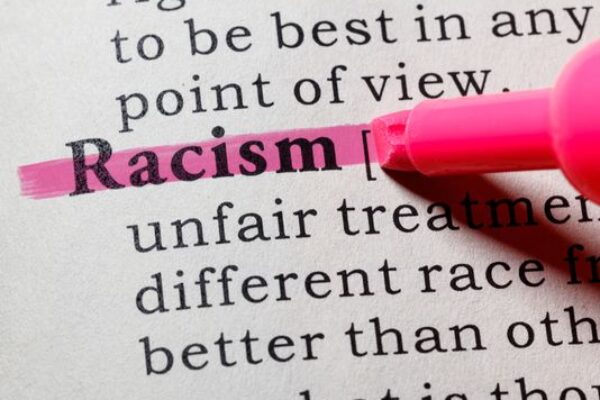Much of our nation is struggling with the grief and rage spurred by the killing of George Floyd in Minneapolis. We need to reject sound bites that fail to deeply interrogate the roots of the chasm between those marching for their lives, and stop the calls for “law and order” that are code for white supremacist actions committed against black and brown people.
The gulf of understanding — the empathy gap — is why we see scenes reminiscent of 1919’s Red Summer and 1992’s uprisings in Los Angeles. Amid the pain and suffering, more of us need to recommit to listen, empathize and act, structurally and individually, so that nobody is abandoned, ignored or marginalized.
The mounting examples of black and brown people being dehumanized in interactions with law enforcement officers and those purporting to uphold order, juxtaposed with white people responding to requests for safety with entitlement and fragility, is more difficult to process at a time of massive inequality. When a black man birdwatching in Central Park finds himself labelled a threat for asking a white woman to leash her dog, it clearly shows how black people are not afforded the same presumption of innocence and legitimacy for simply existing.
In the cases of George Floyd, Eric Garner and the rising toll of other black people who have died in interactions with law enforcement officers, there is a social order that condemns law-abiding protests of prominent black people — and wields military force toward the thousands justifiably stating through protest, “You don’t hear us.” Langston Hughes asked “What happens to a dream deferred?” in 1951. It’s evident in 2020 that it explodes.
George Floyd did nothing justifying the use of deadly force. Nor did Eric Garner in 2014. Both uttered the same words as they expired: “I can’t breathe.” Now it seems protesters cannot exercise constitutional rights without being linked to those attempting to hijack a movement of righteous, passionate anger and pain. The concerns that activists are bringing to the forefront — assuming malice without presumption of innocence — are shown at the highest levels of government.
If only there were a call for love and restoration.
The connection between George Floyd and the situation that birdwatcher Christian Cooper encountered in Central Park may not be obvious to some. But for me as a black man and father of black children, it recalls what happened in Mississippi in 1955 when Carolyn Bryant Donham’s lie led to the lynching of 14-year-old Emmett Till. Her false claim that Till dared to talk to her, a white woman, set in motion the brutal extrajudicial murder of the teenager.
Acquitted by the jury, the self-admitted murderers never served time for their crime. Years later, ignoring that the threat of state-sanctioned action can kill black men reminds us some have forgotten this horror. Or worse, it is used for control, to weaponize race and invoke violence by leveraging irrational fright.
Black lives are wedged in the cogs of white fear and state-sanctioned violence, sometimes executed by police, sometimes by others. Even during the COVID-19 crisis, we have had to add the names of Breonna Taylor, Tony McDade, Ahmaud Arbery and George Floyd to the roster that includes Till, Trayvon Martin and many others.
Racial fear shouldn’t justify the invocation of violence. Leveraging it to silence black people is a hateful act. While we have another undeniable example of how white fear ensconced in white privilege creates a no-win situation for black citizens, a critical need for dialogue on social advantage emerges.
How does racial privilege advance white agendas while simultaneously oppressing the lives and life opportunities of black people? How are schools, workplaces and communities educating about structures and social schema that equate to surveillance and the specter of death for people of color?
Ensuring media, law enforcement, educators and elected officials reflect our diverse population — and that they have power to enact policies to dismantle structures that oppress — is the only way to unearth and eradicate biases that have the power to end lives.
Richard J. Reddick is an associate professor and associate dean for equity, community engagement and outreach in the College of Education at The University of Texas at Austin. He also holds courtesy appointments in the Department of African and African Diaspora Studies, the Institute for Urban Policy Research and Analysis and the Warfield Center for African and African American Studies.
A version of this op-ed appeared in the Abilene Reporter News.




